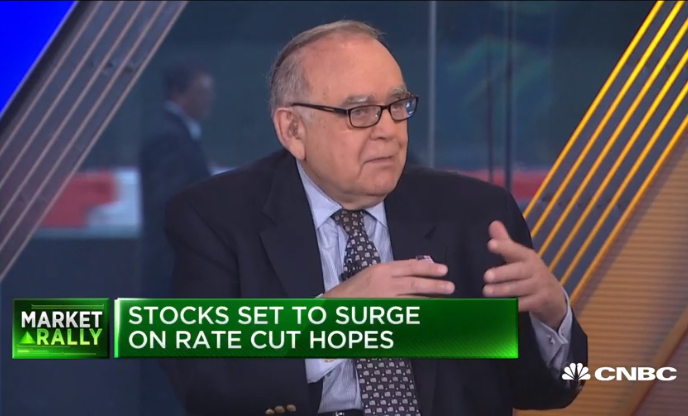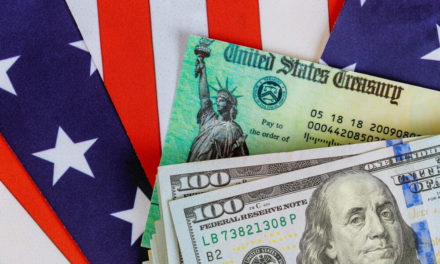The COVID-19 outbreak has caused an unprecedented economic response by the U.S. government, and billionaire investor Leon Cooperman warns the coronavirus could have a major impact on taxes and change the nature of capitalism forever.
“When the government is called upon to protect you on the downside, they have every right to regulate you on the upside,” Cooperman said in a Thursday interview on CNBC’s “Squawk Box” program. “So capitalism is changed.”
The U.S. government has stepped into the fray by providing massive stimulus to individuals and businesses alike as the novel coronavirus has forced the economy into a standstill. The U.S. Federal Reserve has promised to do whatever it takes to prop markets and the economy up.
The CARES Act provided $2.2 trillion in relief, and the House of Representatives was set to approve another $484 billion in stimulus for small businesses and hospitals Thursday.
Cooperman sees this as a shift to the left in policy, which means the coronavirus will impact taxes regardless of who resides in the White House next year.
“Quickly if Biden wins, slowly if Trump wins, but taxes have to go up,” Cooperman said. “So things like carried interest, capital gains taxes, the ability to roll over real estate sales tax-free, all that stuff is going to have to be eliminated. For the good, by the way.”
How the Coronavirus Will Impact Taxes
Banyan Hill Editor Ted Bauman, a noted economist, “absolutely” agrees with Cooperman, saying “taxes are going to have to go up” to fund all the spending.
“They were too low to begin with,” said Bauman. “I know that’s not a popular position to take, but the simple fact is that the federal government was running a massive deficit even during the period that the president called ‘the best economy in our history.’ When the economy is doing well, you’re supposed to make progress in reducing your deficits, not raise them.”
While the coronavirus will most likely impact taxes because Bauman, editor argues there are two ways the U.S. government can go after it has opened the monetary faucets like it has.
“Either it has to raise taxes to pay for those things, or it has to accept that it’s following ‘modern monetary theory,’ or MMT, which says that deficits don’t matter. Since the latter is highly unlikely, I expect taxes to have to go up,” Bauman said.
So the coronavirus’ impact on taxes is likely to mean U.S. citizens will be paying more down the road, but Bauman warns those same citizens are going to “want a return on their investment” by seeing improvements in government performance.
“The long-term decline in government capacity to deal with situations like the current virus outbreak will have to be reversed,” Bauman said. “So ultimately, this is a much bigger issue than just taxes. It’s about whether we want a federal government that can fulfill its functions or not.”
Editor’s note: Do you think taxes must go up to pay for all the coronavirus bailout spending? What other measures could the government take aside from all out MMT (getting China to forgive some U.S. debt comes to mind, however unlikely that may be)? Share your thoughts below.




